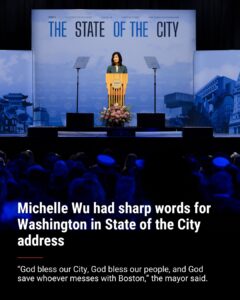Gloucester, Massachusetts, once a thriving fishing hub, is at a crossroads. In the second episode of Evolution of the Underworld, host Jason Trimmins uncovers the town’s dramatic shift from a blue-collar fishing community to a high-end tourist destination. With rising housing costs, vanishing industries, and a struggling working class, the episode offers a raw look at the forces reshaping this historic town.
For generations, Gloucester was defined by its fishing industry, with families passing down the trade like an inheritance. However, as Trimmins highlights, dwindling fish populations, restrictive regulations, and economic shifts have left the industry on the brink of collapse. A commercial clam digger featured in the episode warns of an impending crisis, noting that without proper management, the local clam supply will disappear entirely. Many believe a mix of government intervention, corporate greed, and mismanagement has led to the industry’s downfall.
As the docks grow quieter, developers have seized the opportunity to reshape Gloucester’s landscape. Multi-family homes once owned by working-class Portuguese and Italian families are being converted into luxury condos and upscale rentals. With rental prices soaring, many longtime residents find themselves priced out of the only home they’ve ever known.
Trimmins also delves into Gloucester’s shadowy past, touching on its mid-20th-century ties to organized crime. Once linked to the Boston Italian mob, the town later saw drug culture take root in the 1980s as economic hardship deepened. As fishing jobs vanished, some turned to illicit activities, while others relied on government assistance to survive.
Despite its struggles, Gloucester remains famous for its seafood, but the character of the town is shifting. What was once a close-knit fishing community is now adapting to a tourism-driven economy. Parking lots replace family-owned businesses, and a younger generation faces limited job opportunities and soaring housing costs.
Trimmins paints a vivid picture of a town in transition—one where tradition clashes with modernity, and locals fight to preserve their identity in an ever-changing landscape.












